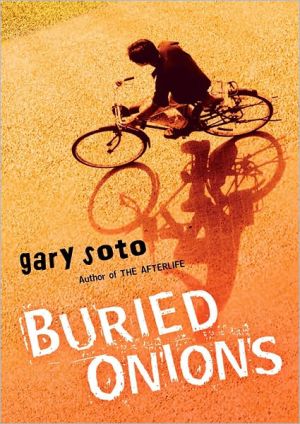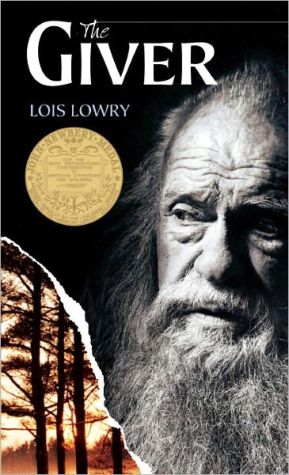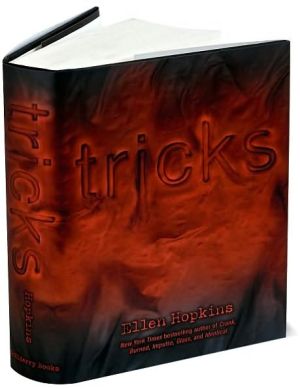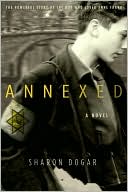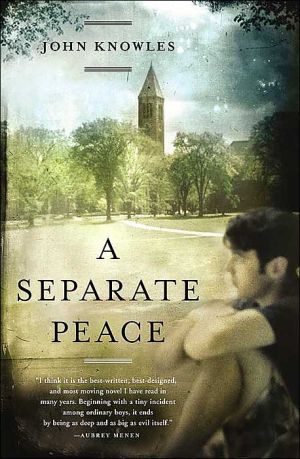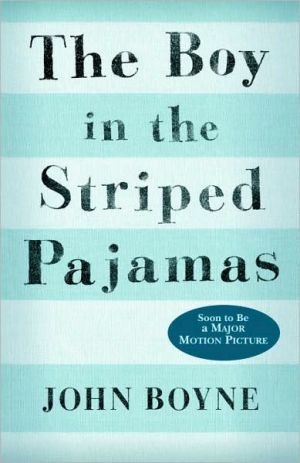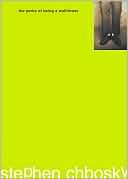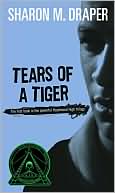Buried Onions
Eddie's father, two uncles, and best friend are all dead, and it's a struggle for him not to end up the same way. Violence makes Fresno wallow in tears, as if a huge onion were buried beneath the city. Making an effort to walk a straight line despite constant temptations and frustrations, Eddie searches for answers—and discovers that his closest friends may actually be his worst enemies. Includes a reader's guide and a glossary of Spanish words and phrases.\ \ \...
Search in google:
Fans of Gary Soto will not be disappointed by his remarkable new novel, Buried Onions. Despite pervasive fear, seedy squalor, and sweltering heat, there is an encouraging seed of hope in this tale of faith and survival in an out-of-control world. The title comes from the main character's image of a giant onion lurking just beneath the city streets, a bulb of sadness whose vapors leak above ground and make people cry. And while there is plenty to cry over in this story of a young man trying to escape what appears to be his destiny, there is also much to cheer and celebrateBeth AmosDespite the lingering stench, pervasive fear, seedy squalor, and sweltering heat, there is an encouraging seed of hope in Gary Soto's Buried Onions , a tale of faith and survival in an out-of-control world. The title comes from the main character's image of a giant onion lurking just beneath the city streets, a bulb of sadness whose vapors leak above ground and make people cry. And while there is plenty to cry over in this story of a young man trying to escape what appears to be his destiny, there is also much to cheer about and celebrate. Nineteen-year-old Eddie has spent his entire life in a crime-ridden and run-down Mexican-American neighborhood in Fresno, California, where kids are as likely to graduate from juvie hall as they are from high school. Drugs, desperadoes, and death are the norm; the streets are mean and the facts of life as cruel as they come. Hoping to learn a trade and improve his chances in life, Eddie enrolls in City College, where he often watches the mortuary students who also attend the school, wondering if they have handled any of the dead friends and family members Eddie has recently lost to violence. When a lack of money forces Eddie to drop out, he hits the streets in search of income, soliciting odd jobs wherever he can and struggling to get by. Then his cousin Jesús is killed, the victim of a senseless and cold-blooded knifing. Scarred by grief and scared for his own future, Eddie resists the urgings of his mother, aunt, and several friends to find Jesús's killer and avenge his death as cultural tradition dictates. When he finds a steady job with a kindhearted and generous man, Eddie focuses on toeing the line and staying out of trouble. But soon both fate and the vicious cycle of violence spin wildly out of control, threatening to pull Eddie into the vortex. When Eddie's employer entrusts him to drive his pickup to the dump, it is stolen when Eddie stops by his apartment for a few minutes on the way back. Shamed and afraid, Eddie doesn't return to his employer, though he does write a note to him trying to explain. Then salvation seems at hand when Eddie spies the stolen truck a few days later while walking along the streets with a friend. While the friend stands beside the truck to keep an eye on it, Eddie heads to a nearby pay phone to call his employer and tell him where the truck is. But by the time Eddie returns to the pickup, he finds his friend has been knifed and left in the street to die. When Eddie hears a rumor that it may have been a trusted friend who killed Jesús, he begins to fear for his own life, a fear that soon becomes all too real. As the pressures and bad luck mount, Eddie's life becomes a daily battle for survival. The temptation to give in to crime, violence, and easy money is great. His tenacity in sticking to his values and beliefs, in holding up when the pressures are pushing him down, is a lesson in all that is wondrous and precious about humanity. With his powerful imagery and thought-provoking situations, Soto paints a vivid and affecting picture. He mimics real life with adept skill, evoking Eddie's feelings of desperation and misery while also revealing the hard-to-see lifelines of hope. There are no easy answers here, and an ambiguous ending. But the underlying theme of not giving up, of striving to break free of life's damaging bonds, offers an invaluable and heartening lesson in both life and hope. --Beth Amos
Chapter One\ \ \ I knew the mortuary students would get good jobs because my cousin had died recently and my father and two uncles were dead, all of them now with arms like the arms of praying mantises, crooked and thin as whispers. My best friend from high school was also dead, his head having been caught like bulk laundry in the giant rollers of a steel foundry. It was his first good job, and his last. I pictured him with a head like a hatchet, and if I met him, say in heaven, or some dream that was close to heaven, I wouldn't know if I should say something first or let him speak the tinny words of someone whose head had been flattened by iron. "Juanito," I decided I'd say, cheerfully patting a bench to invite him to sit next to me, but looking the other way. "You remember when you stuck your flnger in a bottle and couldn't get it out?"\ I had gone to school with Juan since we were seven, and I knew his sister Belinda, now heavy with a baby, her second and possibly her last because her husband, junior, was in Vacaville prison. She hadn't softened. She was a chola with wings of blue over each eye and a tear tattooed on her left cheek.\ I thought about Juan while sitting at a wobbly metal table on the campus of City College. The mortuary students all had clean fingers and sat over coffees that I imagined cooled quicker than the coffee regular students drank. I figured that when they handled the bodies, the dead stole some of their heat, and later, when they climbed the steps of the dank basement, the students of that ghoulish business had to stand in the sun and quiver until the heat returned to their bodies.\ The sun was climbing over the treesof City College and soon the black asphalt would shimmer with vapors. I had a theory about those vapors, which were not released by the sun's heat but by a huge onion buried under the city. This onion made us cry. Tears leapt from our eyelashes and stained our faces. Babies in strollers pinched up their faces and wailed for no reason. Perhaps as practice for the coming years. I thought about the giant onion, that remarkable bulb of sadness.\ I returned to my apartment, which was in a part of Fresno where fences sagged and the paint blistered on houses. The swamp coolers squeaked like squirrels. Dogs pulled at chains, the clover leaf of their padded paws hardened by years of this kind of traction. Laundry wept from the lines, the faded flags of poor, ignorant, unemployable people. The old sat on porches, fanning themselves, stirring up that onion smell so that it moved up and down the block. Some guys, all of them Mexican like me,. worked on their cars, and the young mothers stood on their front lawns, talking as they pushed their strollers back and forth a few inches. Still the babies cried, and their crying stirred up our frustration because we were like those strollers going back and forth, back and forth, getting nowhere.\ For me, there wasn't much to do except eat and sleep, watch out for drive-bys, and pace myself through life. I had dropped out of City College, where I was taking classes in air-conditioning. I quit not long after my cousin, mi primo, Jesus got killed. He was at a club with Angel, his best friend and carnal, a blood brother. On that night he was exactly that, a blood brother, as Angel eased Jesus down to the sticky black-and-white tiled floor. My poor primo. He had died all because he told another guy that he had yellow shoes. They were in the rest room, at the sink I imagined, and my cousin was happy he had a job and a new woman, so happy that he wanted to talk. Jesus made the mistake of looking down at this guy's shoes and saying something. This guy pushed a dirty blade right into my cousin's clean heart. Or so I heard.\ I tried not to think about Jesus, or Juan, or my father and uncles, all of them on their racks of black, black earth. But on those days when I saw the mortuary students huddled together, I couldn't help but think of them. I shook off those images and opened the door to my apartment. Roses flowered near the living-room window, sweetening the entrance. I had no more than a couch and two chairs, college books that I intended to resell, a bed and dresser, and family pictures angled so they almost looked at each other. I had a print of a ship riding the ocean, its sail full, going somewhere. It was fake art, the kind of thing you can pick up at a swap meet or get as a gift when you buy a gaudy red sofa from a Mexican furniture store.\ The apartment was stuffy, hot. I turned on the swamp cooler, poured myself a glass of cold water from the refrigerator, and sat down with a sigh on theporch steps. I got up and checked the mail slot nothing just a reddish rust stain on my fingertips. There never was anything, just junk mail and my gas and electric bill. Even my mother, who lived in Merced with her sister Gloria, who had hearing aids in both wrinkled ears, seldom wrote. I sipped my water while studying a red ant that was hauling a white speck, the bread of its living, pinched in its mouth. I chuckled. The ant was earning his keep.\ of "Keep running, little dude," I muttered. I told myself to keep a steady weight on my shoulders and to stay out of trouble and run a straight line-to stay away from the police and the rumblings of vatos who have nothing to do.\ Buried Onions. Copyright © by Gary Soto. Reprinted by permission of HarperCollins Publishers, Inc. All rights reserved. Available now wherever books are sold.
\ From the Publisher"Soto's descriptions are poetic, and he creates deep feelings of heat and despair. A powerful and thought-provoking read."—School Library Journal\ \ \ \ \ Beth AmosDespite the lingering stench, pervasive fear, seedy squalor, and sweltering heat, there is an encouraging seed of hope in Gary Soto's Buried Onions , a tale of faith and survival in an out-of-control world. The title comes from the main character's image of a giant onion lurking just beneath the city streets, a bulb of sadness whose vapors leak above ground and make people cry. And while there is plenty to cry over in this story of a young man trying to escape what appears to be his destiny, there is also much to cheer about and celebrate.\ Nineteen-year-old Eddie has spent his entire life in a crime-ridden and run-down Mexican-American neighborhood in Fresno, California, where kids are as likely to graduate from juvie hall as they are from high school. Drugs, desperadoes, and death are the norm; the streets are mean and the facts of life as cruel as they come. Hoping to learn a trade and improve his chances in life, Eddie enrolls in City College, where he often watches the mortuary students who also attend the school, wondering if they have handled any of the dead friends and family members Eddie has recently lost to violence. When a lack of money forces Eddie to drop out, he hits the streets in search of income, soliciting odd jobs wherever he can and struggling to get by. Then his cousin Jesús is killed, the victim of a senseless and cold-blooded knifing. Scarred by grief and scared for his own future, Eddie resists the urgings of his mother, aunt, and several friends to find Jesús's killer and avenge his death as cultural tradition dictates.\ When he finds a steady job with a kindhearted and generous man, Eddie focuses on toeing the line and staying out of trouble. But soon both fate and the vicious cycle of violence spin wildly out of control, threatening to pull Eddie into the vortex. When Eddie's employer entrusts him to drive his pickup to the dump, it is stolen when Eddie stops by his apartment for a few minutes on the way back. Shamed and afraid, Eddie doesn't return to his employer, though he does write a note to him trying to explain. Then salvation seems at hand when Eddie spies the stolen truck a few days later while walking along the streets with a friend. While the friend stands beside the truck to keep an eye on it, Eddie heads to a nearby pay phone to call his employer and tell him where the truck is. But by the time Eddie returns to the pickup, he finds his friend has been knifed and left in the street to die.\ When Eddie hears a rumor that it may have been a trusted friend who killed Jesús, he begins to fear for his own life, a fear that soon becomes all too real. As the pressures and bad luck mount, Eddie's life becomes a daily battle for survival. The temptation to give in to crime, violence, and easy money is great. His tenacity in sticking to his values and beliefs, in holding up when the pressures are pushing him down, is a lesson in all that is wondrous and precious about humanity.\ With his powerful imagery and thought-provoking situations, Soto paints a vivid and affecting picture. He mimics real life with adept skill, evoking Eddie's feelings of desperation and misery while also revealing the hard-to-see lifelines of hope. There are no easy answers here, and an ambiguous ending. But the underlying theme of not giving up, of striving to break free of life's damaging bonds, offers an invaluable and heartening lesson in both life and hope.\ \ --Beth Amos\ \ \ \ Publishers Weekly\ - Publisher's Weekly\ This bleak, claustrophobic novel perfectly captures the cyclical despair of its [19-year-old, Hispanic protagonist], said PW; Soto leaves this bitter street tale unsweetened to the end. Ages 12-up. Apr.\ \ \ \ \ Children's Literature\ - Rebecca Joseph\ Eddie is trying to make a life for himself in Fresno; the only problem is that everyone and everything around him is trying to stop him. His father, his best friend, and now a cousin have all died unfortunate gun-related deaths. His aunt wants him to revenge his cousin's death by killing the alleged murderer. When Eddie who struggles to meet ends meet finally finds a job, teenage gang members cause him to lose his job and to possibly wind up in jail. Refusing to resort to violence to solve his problems, Eddie sees the military as a possible way out of his miserable environment. Much like Jamal in Walter Dean Myers's Scorpions who balks at joining his brother's gang, Eddie is determined to lead a legitimate life. Can he leave the city behind? This well-written, gripping book will fascinate teen readers in any classroom.\ \ \ \ \ VOYA\ - Katie O'Dell Madison\ Eddie is a nineteen-year-old, Hispanic city college dropout trying to make good on his own in Fresno, California. Every day Eddie is faced with death: his father's, his cousin's, and the threat of his own. He sees the city he lives in as being built over a huge onion, "that remarkable bulb of sadness" that makes strong men like him cry. He tries to separate his own identity from the violent nature and stupidity he sees in his compadres, but he cannot seem to avoid danger. Eddie gets a job landscaping for a trusting man, but when someone from his community steals the employer's truck, Eddie is too ashamed to go back and admit what happened. He lies low and avoids the phone. While contemplating his future employment, Eddie begins to suspect that his cousin-who was sliced open with a rough, dirty blade-was murdered by his best friend, and Eddie feels his own life might be in danger. In an action-packed second half, Eddie dodges through the dirty barrio, trying to avoid the suspected killer while also experimenting with ways to escape his neighborhood. In the end he turns to his one trusted mentor, a basketball coach, who points him to the military as a way to get out. Soto has created a beautiful, touching, and truthful story about one young man struggling to keep his dignity and not bend to the will of the glue-sniffing locals. Much like the modern classic film Boyz in the Hood, this story, that resorts to neither stereotypes nor clichés, portrays a young man fighting against society to make a place for himself in the world. The lyrical language and Spanish phrases add to the immediacy of setting and to the sensitivity the author brings to his character's life. Buried Onions is Soto's best fiction yet. Especially recommended to teen readers who enjoyed Walter Dean Myers's Scorpions (Harper, 1988) or Jes Mowry's Way Past Cool (Farrar, 1992). VOYA Codes: 5Q 4P J S (Hard to imagine it being any better written, Broad general YA appeal, Junior High-defined as grades 7 to 9 and Senior High-defined as grades 10 to 12).\ \ \ \ \ School Library JournalGr 9 UpLife is a struggle for 19-year-old Eddie as he survives one day at a time in Fresno, California. He lives in a rough neighborhood plagued by drive-bys, drugs, and desperate people. After his cousin Jess is killed, Eddie's aunt pressures him to avenge her son's death. Eddie drops out of City College and works odd jobs, all the while pondering this, the latest of the senseless killings that have become a fact of life within the community. A run of bad luck adds to his frustration as he is inextricably caught up in the violence he deplores. Soto's writing is apt; he provides readers with strong images through the eyes and voice of Eddie. The young man frequently describes his surroundings, "I returned to my apartment, which was in a part of Fresno where fences sagged and the paint blistered on houses....Laundry wept from the lines, the faded flags of poor, ignorant, unemployable people." Additionally, the author stirs more senses with his descriptions of smells and sounds. The only drawback to the story is that it is somewhat repetitious. Characters are introduced, then reenter the story with repeated delineation. Still, Soto's descriptions are poetic, and he creates deep feelings of heat and despair. A powerful and thought-provoking read.Mary M. Hopf, Los Angeles Public Library\ \ \ \ \ Kirkus ReviewsEddie, a young Mexican-American scraping by in the mean streets of Fresno, California, counts four dead relatives and one dead friend in the opening, in-your-face lines of this new novel from Soto (Snapshots from the Wedding,etc.).\ In bleak sentences of whispered beauty, Eddie tells how he dropped out of vocational college and is attempting to get by with odd jobs. His aunt and friends want him to avenge the recent murder of his cousin, but Eddie just wants to find a way out. Everything he tries turns soura stint doing yard work ends when his boss's truck is stolen on Eddie's watchand life is a daily battle for survival. This unrelenting portrait is unsparing in squalid details: The glue sniffers, gangs, bums, casual knifings, filth, and stench are in the forefront of a life without much hope"Laundry wept from the lines, the faded flags of poor, ignorant, unemployable people." Soto plays the tale straightthe only sign of a "happy" ending is in Eddie's joining the Navy. The result is a sort of Fresno Salaam Bombay without the pockets of humanity that gave the original its charm. A valuable tale, it's one that makes no concessions.\ \ \
